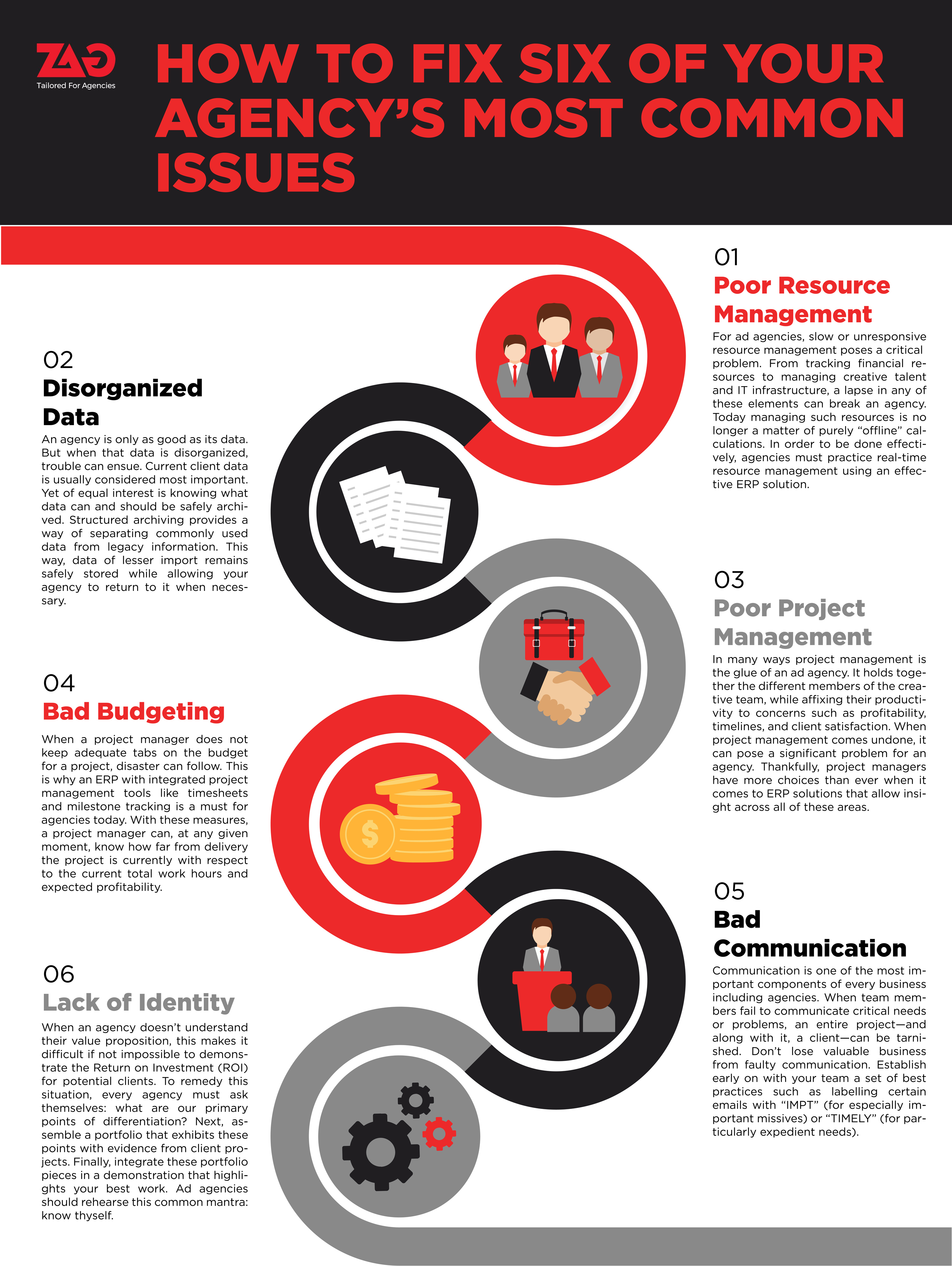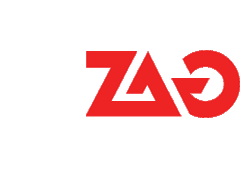
How to Fix Six of your Agency’s Most Common Issues
No ad agency is perfect. No matter how diligent a firm is, there will always challenges that present themselves at every step of your way to becoming a highly successful agency. Thankfully, there are ways to face and overcome many of these important challenges. Here we’ll look at the issues of resource management, data archiving, project management, budgets, team communication, and brand identity. By addressing each of these areas, your agency can stay ahead of the curve.
- Poor Resource Management. For ad agencies, slow or unresponsive resource management poses a critical problem. From tracking financial resources to managing creative talent and IT infrastructure, a lapse in any of these elements can break an agency. Today managing such resources is no longer a matter of purely “offline” calculations. In order to be done effectively, agencies must practice real-time resource management using an effective ERP solution.
- Disorganized Data. An agency is only as good as its data. But when that data is disorganized, trouble can ensue. Current client data is usually considered most important. Yet of equal interest is knowing what data can and should be safely archived. Structured archiving provides a way of separating commonly used data from legacy information. This way, data of lesser import remains safely stored while allowing your agency to return to it when necessary.
- Poor Project Management. In many ways, project management is the glue of an ad agency. It holds together the different members of the creative team while affixing their productivity to concerns such as profitability, timelines, and client satisfaction. When project management comes undone, it can pose a significant problem for an agency. Thankfully, project managers have more choices than ever when it comes to ERP solutions that allow insight across all of these areas.
- Bad Budgeting. When a project manager does not keep adequate tabs on the budget for a project, disaster can follow. This is why an ERP with integrated project management tools like timesheets and milestone tracking is a must for agencies today. With these measures, a project manager can, at any given moment, know how far from delivery the project is currently with respect to the current total work hours and expected profitability.
- Bad Communication. Communication is one of the most important components of every business including agencies. When team members fail to communicate critical needs or problems, an entire project—and along with it, a client—can be tarnished. Don’t lose valuable business from faulty communication. Establish early on with your team a set of best practices such as labeling certain emails with “IMPT” (for especially important missives) or “TIMELY” (for particularly expedient needs).
- Lack of Identity. When an agency doesn’t understand their value proposition, this makes it difficult if not impossible to demonstrate the Return on Investment (ROI) for potential clients. To remedy this situation, every agency must ask themselves: what are our primary points of differentiation? Next, assemble a portfolio that exhibits these points with evidence from client projects. Finally, integrate these portfolio pieces in a demonstration that highlights your best work. Ad agencies should rehearse this common mantra: know thyself.
April 12, 2018
in ERP, Uncategorized
No Comments
